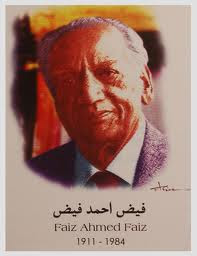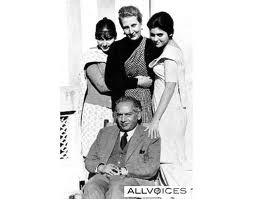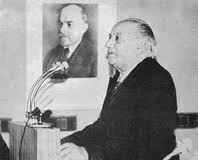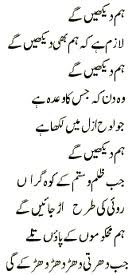His style, coming after Iqbal, was a new trend. It took Urdu poetry into an altogether new phase. Earlier, as you know, Urdu poetry was recited in a very affected style. It was full of romanticism. It talked of love, gardens, flowers et al. It is not that Faiz did not use these phrases or interpretations of life, it was just that his poetry had a revolutionary style.
If you see, he says:
“Gar aaj tujhse juda hain to kal baham hongey Yeh raat bhar ki judai to koi baat nahin”
It was not that he is not using the previous imageries; it is just that there is a solid infusion of new ideas, and more so in the way of presentation. In these lines, he has adopted the old, but also merged them with a new style.
Similarly his “Teri aawaaz ke saaye...Tere honthon ke seraab…Dasht-e-tanhaayi mein...Aye jaan-e-jahaan larzaan hai...” was revolutionary in style. It was an absolute new way of presenting poetry, even if it was romanticism.
(Updated on Saturday, November 21, 2009, 16:33 by zeenews)If you see, he says:
“Gar aaj tujhse juda hain to kal baham hongey Yeh raat bhar ki judai to koi baat nahin”
It was not that he is not using the previous imageries; it is just that there is a solid infusion of new ideas, and more so in the way of presentation. In these lines, he has adopted the old, but also merged them with a new style.
Similarly his “Teri aawaaz ke saaye...Tere honthon ke seraab…Dasht-e-tanhaayi mein...Aye jaan-e-jahaan larzaan hai...” was revolutionary in style. It was an absolute new way of presenting poetry, even if it was romanticism.


















































